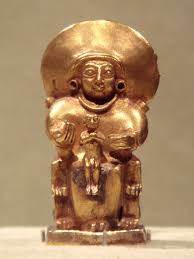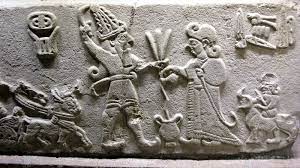The Role of Women in the Hittite Empire: Power Behind the Throne
Introduction
The Hittite Empire, which flourished in Anatolia (modern-day Turkey) during the second millennium BCE, was one of the most powerful and influential civilizations of the ancient Near East. While much of the historical narrative often centers on the kings and military conquests of the Hittites, the role of women within this empire is a fascinating and often overlooked aspect of its history. Hittite women, particularly those in the royal family, wielded significant influence and power, shaping the political, religious, and social fabric of the empire. This article delves into the roles and responsibilities of Hittite women, highlighting their impact on the governance and culture of the empire.
Hittite society was patriarchal, but women were far from being passive or powerless. They held a range of roles within the family, the economy, and the state. While common women were primarily involved in domestic activities, agriculture, and textile production, women of the elite class, particularly the royal women, enjoyed considerable privileges and responsibilities.
Hittite law codes provide insights into the rights and status of women. These laws, which were remarkably progressive for their time, offered protections for women in matters of marriage, divorce, and property ownership. Women could inherit property, manage estates, and in some cases, act as legal representatives for their families. This legal framework underscores the importance of women in maintaining the social and economic stability of Hittite society.
The Role of Queens: Partners in Power
The queens of the Hittite Empire, known as Tawananna, were not merely the wives of kings but were considered their partners in rule. The title of Tawananna was often held by the queen consort, but it could also be retained by the queen mother, ensuring that her influence persisted even after the death of her husband. This continuity of power allowed the queens to play a vital role in the succession of the throne and the stability of the empire.
The Tawananna was involved in both secular and religious affairs. In secular matters, the queen often acted as an advisor to the king, participating in diplomatic negotiations and statecraft. Some queens even served as regents, ruling on behalf of their minor sons or during periods of political instability. The queen’s influence extended to legal matters as well, where she could issue decrees and participate in the administration of justice.
Religious Authority: The Queen as High Priestess
Religion was deeply intertwined with governance in the Hittite Empire, and the queen held a significant religious role as the high priestess. The Tawananna was responsible for performing key rituals and ceremonies, particularly those related to the cult of the Hittite gods and goddesses. Her position as a religious leader reinforced her status and authority within the empire.
One of the most important religious duties of the queen was the maintenance of the state cult. This included overseeing the worship of the Storm God and the Sun Goddess, who were the chief deities of the Hittite pantheon. The queen’s involvement in these rituals was believed to ensure the favor of the gods and the prosperity of the empire. The queen’s role as a mediator between the divine and the mortal realms further solidified her position as a central figure in both the spiritual and political life of the Hittite state.
Notable Hittite Queens
Several Hittite queens stand out in history for their exceptional influence and leadership.

Puduhepa, the wife of King Hattusili III
One of the most famous is Puduhepa, the wife of King Hattusili III (reigned c. 1267–1237 BCE). Puduhepa was not only a powerful queen but also a diplomat and a religious leader. She played a crucial role in negotiating the Treaty of Kadesh with Pharaoh Ramses II of Egypt, one of the earliest known peace treaties in history. Her influence was so significant that she continued to act as a regent for her son after her husband’s death, ensuring the stability of the Hittite throne.
Puduhepa’s correspondence with foreign rulers, including the Egyptian pharaoh, reveals her diplomatic acumen and the respect she commanded on the international stage. Her involvement in state affairs and her religious duties as high priestess made her one of the most powerful women of the ancient world.
Another noteworthy queen is Queen Tawananna, who served as the queen mother and was involved in the political and religious life of the empire during the reign of her son, King Mursili II (reigned c. 1321–1295 BCE). Her name, which became synonymous with the title of queen, indicates her lasting influence and the reverence in which she was held.
Women in Hittite Religion and Mythology
Beyond their roles in governance, women also played a significant part in Hittite religion and mythology. Goddesses held prominent places in the Hittite pantheon, and their worship was central to the religious practices of the empire. The Hittites believed in a pantheon of gods and goddesses, many of whom were associated with natural forces such as the earth, the sun, and fertility.
The Sun Goddess of Arinna, for example, was one of the most important deities in Hittite religion. She was often depicted as a powerful mother figure, embodying the concepts of fertility and protection. The queen’s role as high priestess often included the worship of this goddess, further linking the power of the queen with the divine.
In Hittite mythology, women were often portrayed as both powerful and nurturing figures. Myths involving goddesses like the Sun Goddess and the goddess Hebat, the consort of the Storm God, highlight the dual roles of women as life-givers and protectors. These myths not only reflected the religious beliefs of the Hittites but also reinforced the societal roles of women within the empire.

The Influence of Hittite Women in Diplomacy and Alliances
Hittite royal women also played a crucial role in diplomacy and the formation of alliances through marriage. Marriages between Hittite princesses and foreign rulers were common, and these unions helped to secure peace and strengthen political ties between the Hittites and their neighbors. The daughters of the Hittite kings were often sent to foreign courts as part of diplomatic negotiations, where they served as symbols of alliance and goodwill.
These marriages were more than just political arrangements; they were strategic tools that helped to stabilize the region and ensure the security of the Hittite Empire. The influence of these royal women extended beyond the borders of the empire, as they became intermediaries between their natal and marital homes, facilitating communication and maintaining alliances.
Conclusion
The role of women in the Hittite Empire was multifaceted and deeply influential. From the queens who ruled as partners in power, to the high priestesses who maintained the religious and spiritual life of the empire, Hittite women played a crucial role in shaping the history and culture of their civilization. Their contributions to governance, religion, and diplomacy were significant, ensuring the stability and prosperity of the Hittite Empire for centuries.
The legacy of these powerful women, such as Puduhepa and Tawananna, serves as a reminder of the often-overlooked contributions of women in ancient history. Their stories challenge the traditional narratives of male-dominated societies, highlighting the importance of women’s leadership and influence in the ancient world.









